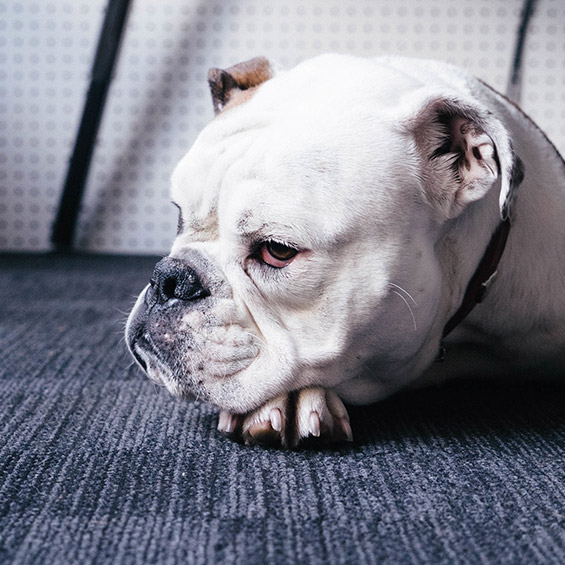
Why Doesn't My Dog Sleep at Night?
by VitaPaws
24/01/2017
The typical image of a dog is an animal that lives a carefree life, and one that is able to sleep anytime, anyplace, anywhere. However, this is not always the case and some dogs will exhibit the classic traits of a night-owl, which can lead to frustration in owners who might end up losing sleep themselves. This article looks at some of the reasons that a dog might be finding it difficult to sleep, and summarises what owners can do to help their dog get their night-time rest.
Puppies
If your dog is a puppy, loneliness could be preventing him from sleeping at night. Puppies spend the first part of their life in the company of their mother and other members of the litter. In the early stages of separation, they find it difficult to adapt to their new home and may struggle to settle down. A night light can provide some comfort to puppies while that are adapting to their new home, and some respond well to having a soothing radio program on at low volume. A warm blanket might also be helpful, but the main thing that puppies need to settle in to an unfamiliar environment is time to learn the routine of playing through the day and resting though the night.
Weight Issues
Maintaining an appropriate bodyweight is important for a number of reasons, and being overweight can have a negative impact on the health of a dog in a variety of ways. An excess of body fat can predispose a dog to a higher risk of developing a condition known as sleep apnoea. This is a condition that causes the walls of the throat to narrow during sleep, making it difficult to breathe. Your vet will be able to tell you whether or not your dog is at a healthy weight for their breed and life-stage, and you should book a consultation if you think that their weight is affecting their sleep or any other aspect of their health. With proper weight management techniques, and correct feeding practices, there is no reason why most dogs will be able to achieve a normal weight.
Excess Energy
If the owner is out for most of the day, and the dog is home alone, they might prefer to spend the daytime sleeping. Under these circumstances, a dog is likely to become more excitable in the evening upon the householder's return, and it is especially common for dogs that the spend most of the day resting to experience a surge of energy following their evening feed. If you are not available to walk the dog during the day, it might be wise to investigate the possibility of someone else taking on the responsibility. If there is nobody in your family or social network that could help out, professional dog-walkers can be hired to give them the exercise they need. Otherwise, you should ensure that your dog gets enough physical activity during the evening, but try not to take them out right before bedtime, because this might have an unwanted stimulatory effect.
Anxiety
A sudden change in the dog's environment or a disruption to their usual routine can cause them to experience emotional distress. A house move, change of ownership or even guests or visitors can result in confusion that may have an impact on their ability to sleep. If you have moved house, make sure that the dog's scent is spread around the house. Rub a towel on your dog's face and then dab it around any rooms to which they have access. The dog will be able to pick up their personal scent profile, which will help them to feel more secure in their new home. Herbal remedies can also be useful in helping anxious dogs to get a better night's sleep.
Physical Factors
Sometimes difficulty sleeping might indicate that a dog has a physical issue that requires addressing. The pain caused by arthritis, or the discomfort caused by one of a number of common conditions that affect the joint of canines, can have a role in keeping a dog awake at night. Other physical causes of insomnia in dogs can include problems with internal organs, incontinence or an infestation with parasites. If you think that an existing medical issue is preventing your dog from being able to rest at night, or you notice something new that seems to be bothering your pet, you should seek advice from a vet. It might also be worth discussing with the vet whether or not there is the possibility that any medication that they are taking might be keeping them awake at night.
ALL PET NEWS





 Order before 12pm Mon-Fri for same day dispatch
Order before 12pm Mon-Fri for same day dispatch

